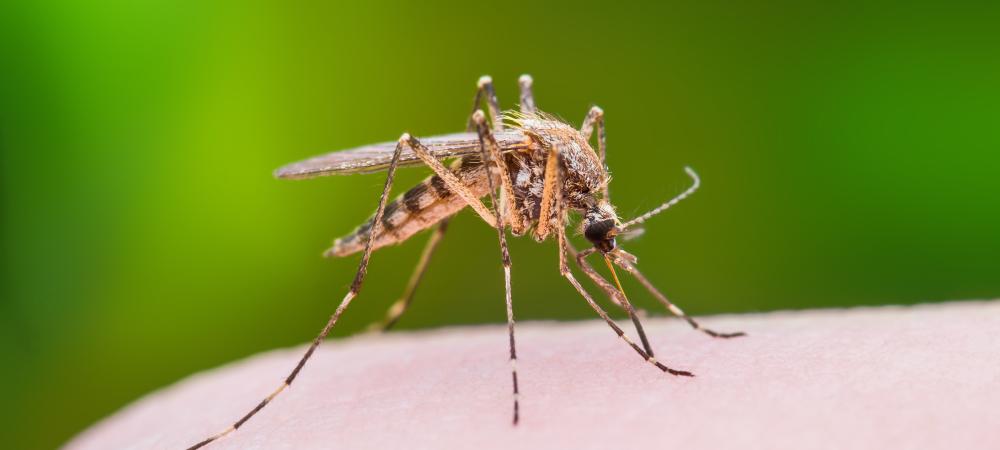Mosquito-Borne Diseases in Maryland

Mosquitoes are a common nuisance during the warmer months but can also transmit harmful diseases such as the West Nile virus and Zika virus. In Maryland, these diseases have been reported in recent years, making it essential for residents to be informed and take necessary precautions.
What Are Mosquito-Borne Diseases?
Mosquito-borne diseases are illnesses that are spread by mosquitoes. In Maryland, several mosquito-borne diseases can affect people, including West Nile virus, Zika virus, Eastern Equine Encephalitis (EEE), and La Crosse encephalitis. These diseases can cause serious health complications.
Are Animals and Humans at Risk of Infection?
Other animals, such as horses, birds, chipmunks, and bats, have also contracted the illness. Humans are vulnerable to these diseases and should take the same prevention measures as other animals. Some steps include avoiding outdoor activities at dawn and dusk when mosquitoes are most active, wearing long-sleeved shirts and pants outdoors, and using insect repellent containing DEET. Mosquito-borne illnesses can cause severe complications in humans and animals, so it is vital to be aware of the risks and take steps to protect yourself.
Types of Mosquito-Borne Diseases in Maryland
Mosquito-borne diseases are a significant health concern in Maryland, especially during summer. Maryland's most common mosquito-borne diseases include West Nile Virus (WNV), Zika virus, Eastern equine encephalitis (EEE), and La Crosse encephalitis. These illnesses can cause severe symptoms such as fever, headaches, body aches, and fatigue.
West Nile Virus
West Nile Virus (WNV) is a mosquito-borne illness that can cause severe neurological illnesses in humans. It is primarily spread by the Culex species of mosquito, which are most active during dawn and dusk. Symptoms of WNV include fever, headaches, body aches, fatigue, and occasionally confusion or disorientation. More severe symptoms, such as meningitis or encephalitis, can occur in some cases.
Zika Virus
Zika virus is a mosquito-borne illness that can cause severe human complications, including birth defects. It is spread primarily by the Aedes species of mosquito, which are most active during the day and in areas with standing water. Symptoms of the Zika virus include fever, rash, joint pain, red eyes (conjunctivitis), and headache.
Eastern Equine Encephalitis (EEE)
Eastern equine encephalitis (EEE) is a mosquito-borne illness that can cause severe neurological illnesses in humans. It is primarily spread by the Culiseta species of mosquito, which are most active during dusk and dawn. Symptoms of EEE include fever, headaches, body aches, fatigue, and occasionally confusion or disorientation. More serious symptoms, such as meningitis or encephalitis, can occur in some cases.
La Crosse Encephalitis
La Crosse encephalitis is a mosquito-borne illness that can cause severe neurological illnesses in humans. It is primarily spread by the Aedes species of mosquito, which are most active during the day and in areas with standing water. Symptoms of La Crosse encephalitis include fever, headaches, body aches, fatigue, and occasionally confusion or disorientation. More serious symptoms, such as meningitis or encephalitis, can occur in some cases.
Malaria
Malaria is a mosquito-borne disease caused by the Plasmodium parasite and is found in many parts of the world, including Maryland. Symptoms of malaria include fever, chills, sweats, headaches, nausea, vomiting, and body aches. More severe complications, such as organ failure or even death, can occur in some cases.
Treatment Options for Mosquito-Borne Diseases
There are several treatment options available for those affected by mosquito-borne diseases. For mild symptoms such as fever, chills, and body aches, over-the-counter medications like ibuprofen or acetaminophen can help relieve discomfort. Aspirin should not be used in children or adolescents due to the risk of Reye's syndrome.
In more severe cases, prescription medications may be necessary to reduce inflammation and prevent complications. Antibiotics are also used to treat some infections caused by mosquito bites. Other treatments include rest, fluids, and monitoring vital signs such as temperature and pulse rate. It is important to seek medical attention if you experience any of the symptoms mentioned above after being bitten by a mosquito to receive the appropriate treatment.
How Can Maryland Mosquito Help?
To help prevent the spread of mosquito-borne diseases in Maryland, it is crucial to minimize interaction with mosquitoes. Maryland Mosquito is here to help! Our mosquito control company offers one-time or recurring treatments with no contracts. Contact us today to get started.